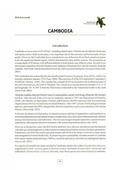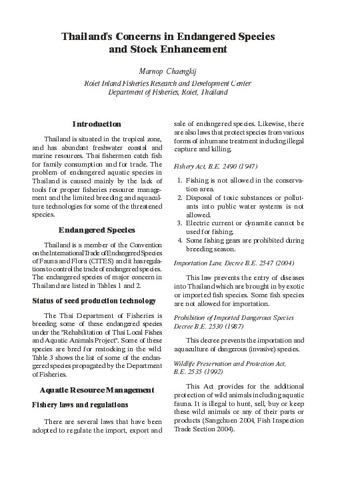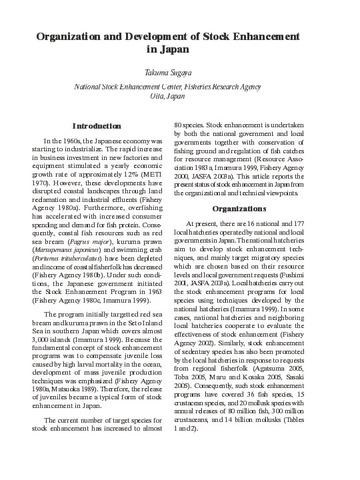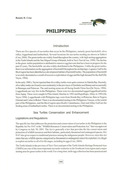Cambodia
Share
Abstract
Cambodia covers an area of 181,035 km2, including inland waters. Fisheries are divided into freshwater and marine sectors. Both sectors play a very important role for the economy and food security of rural people. However, the Cambodian Sea is considered as one o f the most diversified coastal ecosystem in the sub-equatorial climatic region , which is dominated by rainy and dry seasons. The sea area has an average depth of 50 meters with different habitats in both inshore and offshore zones. Several rivers and streams originating from the Elephant and Cardamom Mountains flow into the estuaries along the coastline, where both volume and nutrient levels are much increased during the wet season (Sereywath, 2003).
Suggested Citation
Sereywath, P. (2004). Cambodia. In Z. Talib, A. Ali, K. K. K. Yaacob, & M. Mohd. Isa (Eds.), Conservation and Enhancement of Sea Turtles in the Southeast Asian Region (pp. 47-52). Kuala Terengganu, Malaysia: Marine Fishery Resources Development and Management Department, Southeast Asian Fisheries Development Center.
Subject
Related items
Showing items related by title, author, creator and subject.
-
Thailand's concerns in endangered species and stock enhancement
Chaengkij, Marnop (Aquaculture Department, Southeast Asian Fisheries Development Center, 2006)The paper provides a comprehensive list of endangered freshwater, brackishwater, and marine aquatic species in Thailand. The Thai Department of Fisheries is breeding some of the endangered species under the “Rehabilitation ... -
Organization and development of stock enhancement in Japan
Sugaya, Takuma (Aquaculture Department, Southeast Asian Fisheries Development Center, 2006)In the 1960s, the Japanese economy was starting to industrialize. The rapid increase in business investment in new factories and equipment stimulated a yearly economic growth rate of approximately 12% (METI 1970). However, ... -
Philippines
Cruz, Renato D. (Marine Fishery Resources Development and Management Department, Southeast Asian Fisheries Development Center, 2004)There are five species of sea turtles that occur in the Philippines, namely green hawksbill, olive ridley, loggerhead and leatherback. Several locations for sea turtles nesting are shown in Table 6 (Cruz, 2004). The green ...





